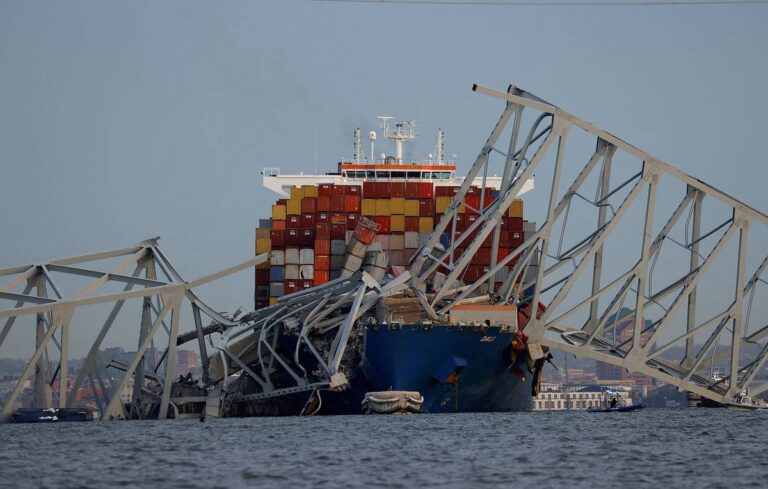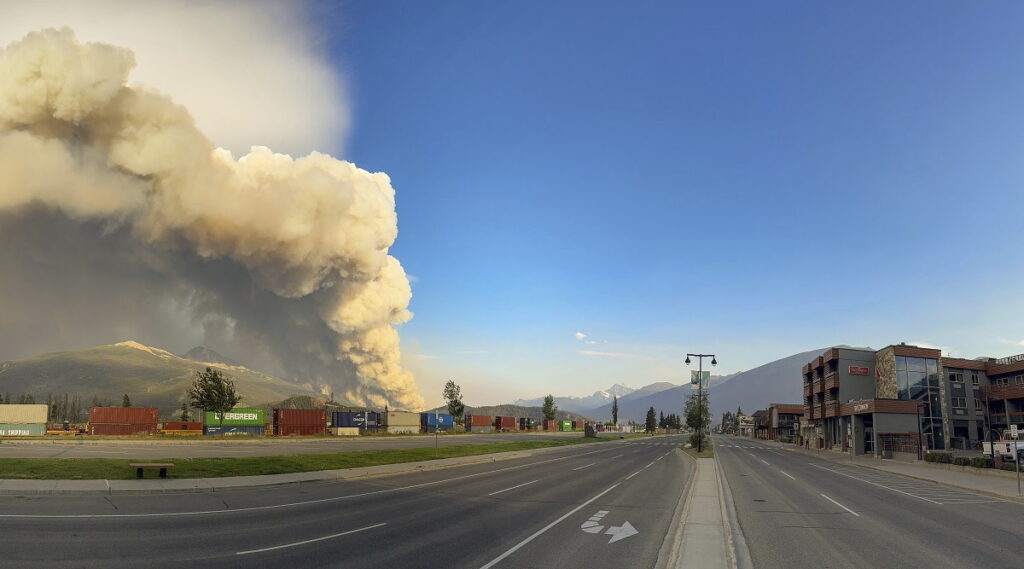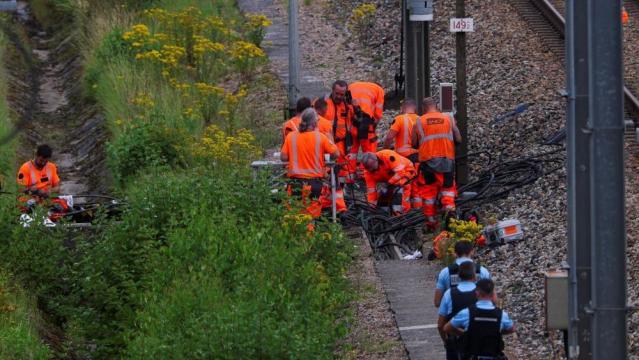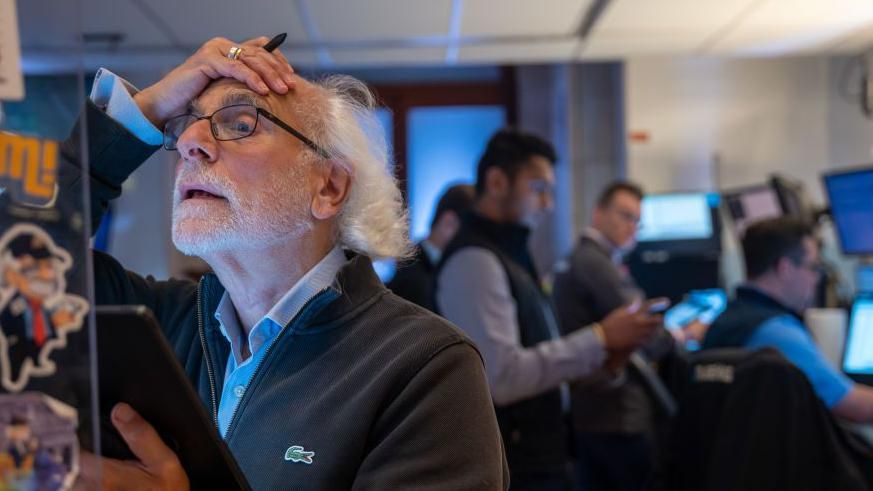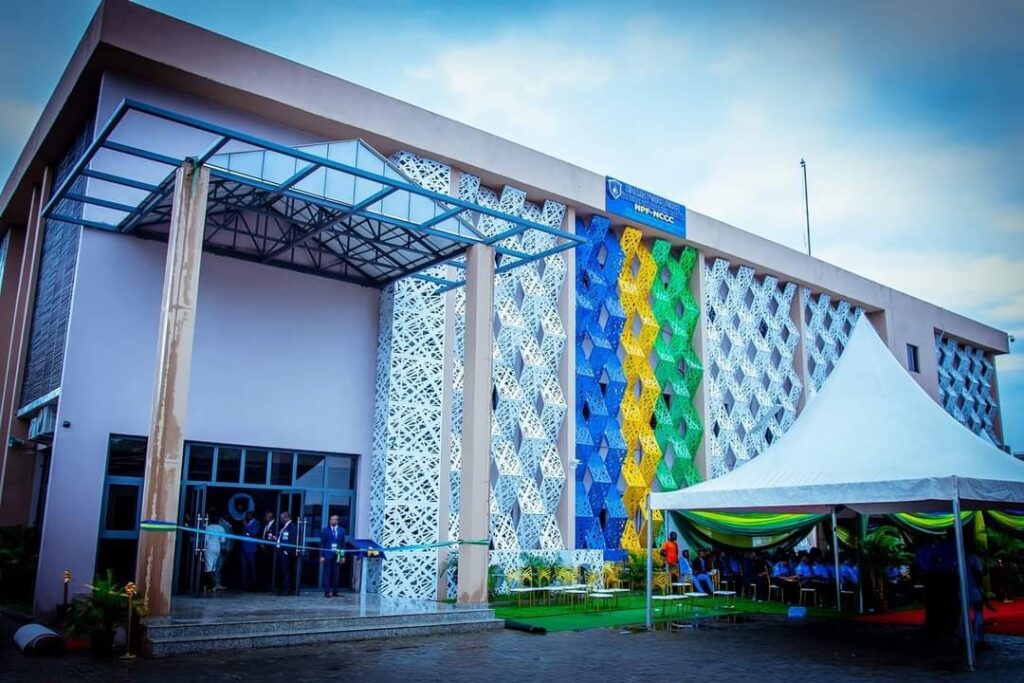Concerns have surfaced regarding potential disruptions to global supply chains following a collision involving a container ship and a bridge in the city of Baltimore, USA.
The vessel, identified as the Dali, collided with a support column of the Francis Scott Key Bridge during the early hours of Tuesday morning, resulting in its collapse.
This bridge served as a crucial passage to the entrance of the Port of Baltimore, renowned as the busiest port in the United States for automobile exports and ranking ninth overall in terms of traffic volume.
Tragically, six individuals are currently unaccounted for and presumed deceased as a result of the incident.
The US Coast Guard has transitioned from search and rescue operations to a recovery mission, signaling a shift in focus towards investigating the cause of the incident. A team of transportation safety experts aims to board the distressed vessel to retrieve its data recorder, initiating the probe into the circumstances leading to the collision.
In response to the situation, officials have announced the suspension of maritime traffic through the port, which handled over 47 million tonnes of foreign cargo last year. This suspension will remain in effect “until further notice.”
Marco Forgione, Director General at The Institute of Export and International Trade, representing UK businesses engaged in global trade, highlighted the potential ramifications of the port’s closure on worldwide supply chains. In an interview with BBC Radio 4’s The World Tonight, Forgione emphasized the significant impact this suspension could have, citing the transit of over 750,000 vehicles through Baltimore last year. These vehicles represent prominent US, UK, and EU brands, including General Motors, Ford, Jaguar Land Rover, Nissan, Fiat, and Audi.
Moreover, Baltimore plays a crucial role as a major exporter of liquefied natural gas (LNG), with implications extending to the UK and the EU.
“Approximately half a million tonnes of LNG depart from Baltimore each month, so the repercussions of this incident are significant and will reverberate until normal operations are restored,” explained Marco Forgione, Director General at The Institute of Export and International Trade.
In addition to maritime activities, the Port of Baltimore directly sustains around 15,000 jobs and indirectly supports approximately 140,000 more.
In response to the accident, Maersk, a prominent Danish shipping company whose cargo was aboard the Dali, announced the exclusion of Baltimore from all its services for the foreseeable future.
Furthermore, several rail and coal companies have cautioned their clients about potential disruptions to coal exports.
During a briefing, US Secretary of Transportation Pete Buttigieg emphasized the significant and enduring effect on supply chains resulting from the incident. “There is no question that this will be a major and prolonged impact,” he stated. Buttigieg noted that it was premature to provide estimates regarding the timeline for clearing the channel and resuming port operations.
President Biden echoed Buttigieg’s sentiments, affirming the government’s commitment to swift action. “We will move heaven and earth to reopen the port and reconstruct the bridge as expeditiously as possible,” Biden assured reporters. However, he cautioned that the process would require considerable time and effort.
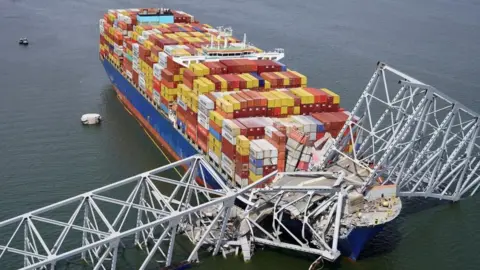
While the precise cause of the collision is yet to be determined, authorities have indicated that the vessel experienced a “power issue” and made a distress call prior to colliding with the bridge. Investigations are ongoing to ascertain the full circumstances surrounding the incident.

